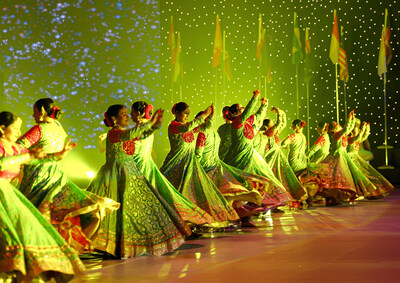
International Kho Kho Stars Celebrate Indian Culture and Hospitality at World Cup
A Celebration of Culture at the Kho Kho World Cup
The inaugural Kho Kho World Cup held in New Delhi has become a remarkable event for not just the sport but also for showcasing India's rich cultural heritage. Both the Men's and Women's Indian teams triumphantly lifted the championship trophy, but the real magic of the tournament lay in the unforgettable experiences shared by international players. With participants from 23 nations across six continents, the tournament was kicked off by an extravagant cultural festival that truly set the tone for the competition.
A Grand Opening Ceremony
The opening ceremony was a stunning event that featured a spectacular array of musical performances and dance acts, highlighting the vibrancy and warmth of Indian hospitality. International players were amazed by the elaborate traditional displays, making it an eye-opening introduction to Indian culture.
Iranian player Amir Ghiasi expressed his delight at the experience, saying, "It was our first time in India, and we had a great time. The Indian hospitality was superb. From the moment we arrived, everything was arranged for us perfectly. The hotel accommodations and the tailored food options were a testament to their thoughtfulness. We loved the cultural celebrations—they were incredible!"
High Praise for Indian Hospitality
Amandeep Kaur, representing the New Zealand Women's team, echoed similar sentiments. "We thoroughly enjoyed the experience, although the competition turned out to be tougher than we expected. Now we're motivated to prepare for the next level of play." The event organizers, led by Sudhanshu Mittal (President of the Kho Kho Federation of India) and a dedicated team, made sure that all facilities were catered to the needs of the visiting teams, achieving high praise for their efforts.
The sentiment among international players regarding Indian hospitality was overwhelmingly positive. One player remarked, "Everyone loved the atmosphere here. The support offered to foreign teams was absolutely amazing. It’s heartwarming to see so many nations come together. We had immediate access to doctors and physiotherapists, and any dietary requirements were seamlessly handled. India has truly set a benchmark for hosting such events."
Exploring Indian Culture
Aside from the thrilling matches, players were also given the chance to immerse themselves in the rich cultural fabric of India. Many took trips to iconic landmarks like the Taj Mahal in Agra, while also sampling the famous Indian street food. Peru's Men's Team Head Coach, Silvana Patricia, noted, "Everything—from the hospitality to the food—was exceptional. The dance shows, traditional outfits, and music made it hard to know where to focus. It was a fantastic World Cup experience!"
Brazil's Men's Team Head Coach, Laura Doering, added, "Every facet of this culture feels so different from ours. I’m captivated by the details of everything around me. The kindness of the people here is unmatched. I even want to learn some dance moves to bring back home with me!"
Conclusion
The Kho Kho World Cup has not only served as a platform for showcasing athletic talent but has also acted as a cultural exchange for the world. The event's success speaks volumes about the welcoming spirit of India and the ability of sports to unify diverse nations through shared experiences and mutual respect.
For more insights and details on the Kho Kho Federation, visit Kho Kho Federation.


Topics Sports)










【About Using Articles】
You can freely use the title and article content by linking to the page where the article is posted.
※ Images cannot be used.
【About Links】
Links are free to use.